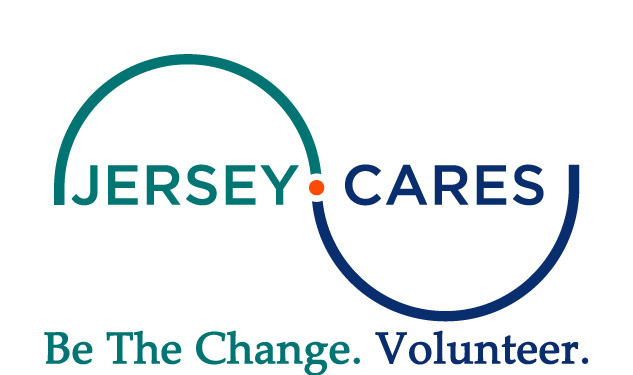
Log in with
.png)
The Points of Light Civic Circle® helps individuals connect to opportunities and understand that doing good comes in many forms. It is a framework that represents your power to lead, lend support and take action for causes you care about and to lead a civic life. It is a way for people, nonprofits and businesses to address the challenges and opportunities existing in our communities, and collectively move the needle for issues they care about.
.png)
The Civic Circle® is composed of nine elements that can be used to lead a civic life. These elements can be used in countless ways depending on the societal challenges that are most important to you. Below you'll find descriptions of each of the nine elements along with resources and learning materials to take a deeper dive. Jersey Cares hopes you consider using these resources to tackle some of the most pressing issues in communities throughout New Jersey.
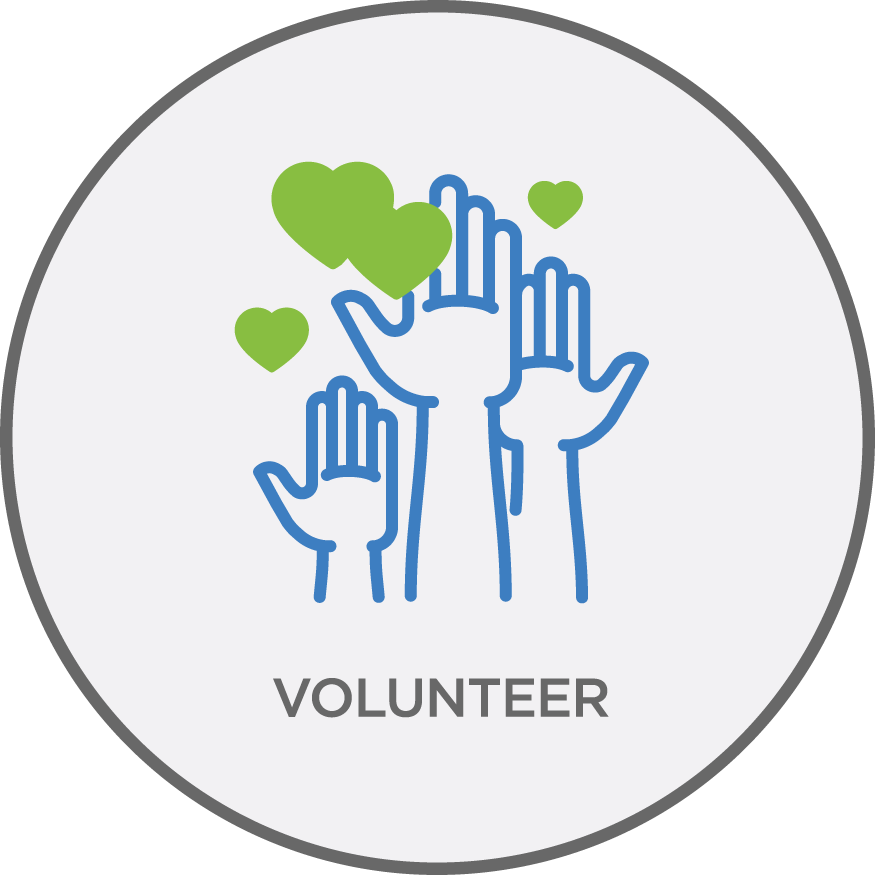
Choose to give your time and talents inside and outside of your home to help your community or a cause you care about.
A volunteer is someone who lends their time and talent to advance a cause or help solve a societal issue. Volunteering is about raising your hand to support the people and communities who need your support without concern for personal gain.
Traditionally, volunteering is often conducted in service of a nonprofit organization. Nonprofits throughout the globe rely on volunteers to deliver their mission and save critical financial resources. However, most volunteerism takes place through informal acts of kindness. Shoveling snow from a neighbor’s driveway, picking up groceries for a senior citizen, or collecting canned goods for a local family are all informal acts of volunteerism.
When searching for volunteer opportunities many people ask themselves, “Can one person really make a difference?” The short answer is, yes. While you may not solve global food-insecurity when you start volunteering, simple acts such as socializing with an isolated senior citizen can be transformational to the person or community sharing the experience. As you begin your volunteer journey it’s also important to find opportunities that match your skills and availability. Always consider your schedule, work style, travel requirements, and available time commitment when searching for opportunities. Some opportunities may require training. It’s also important to learn about the organization you are volunteering with. Doing research beforehand or engaging in deep conversations with the organization’s staff will help you feel more connected to the opportunity. Volunteerism should not be viewed as a transactional act of charity, but a mutual experience between neighbors – something that can go a long way toward building equity in our communities.
Find a volunteer opportunity in New Jersey:
- Jersey Cares Volunteer Opportunity Calendar – Jersey Cares lists public volunteer opportunities available throughout New Jersey. Browse and sign-up for an opportunity as an individual or team today!
- Jersey Cares Corporate Service Program – Organize a custom volunteer event or project for your group of colleagues.
- Jersey Cares Collection Drives – Host one of several different collection drives offered by Jersey Cares.
Learn more about volunteerism:
- Volunteer – Points of Light Civic Life Today Magazine
- Value of Volunteer Time
- Volunteering and its Surprising Benefits
- Top Volunteer Opportunities for Seniors - Road Scholars
- Why Volunteering is Our Most Precious Heirloom (Video)
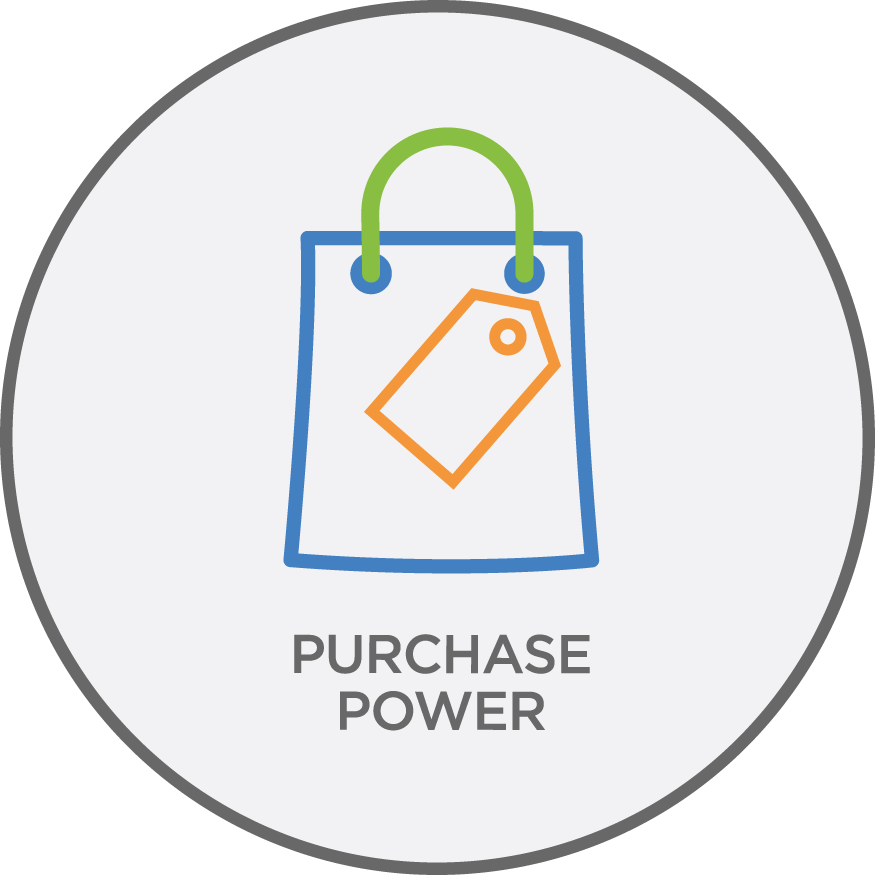
Make decisions that reflect your values or advance a social cause or issue by choosing where you do and don’t spend your money.
Purchase power is an individual’s ability and influence when they make decisions around spending or consumption of goods and services. You can make purchasing decisions based on how your values align with those of a product, company, or service. You might avoid purchasing from a particular company because their policies or values don’t align with yours. Maybe the company leaves a negative footprint on the environment or you disapprove of their labor practices. Whatever it is, you have the purchase power.
An important part of purchase power is being a conscious consumer. This means considering the entire lifecycle of a product from its origins until it can no longer be used. Conscious consumers ask themselves questions like, "Can I recycle the packaging of this product? Where and how was this product made? How are the chickens that lay the eggs I buy raised?" Consider the answers to these types of questions and slowly adjust your purchasing practices accordingly. Using purchase power isn’t about changing your entire lifestyle, it’s about being more aware of your purchases and making small incremental changes to make yourself a well-informed consumer.
Other examples of using your purchase power include buying a product or service to support a specific population (i.e. BIPOC, veteran, or women owned businesses), shopping at local or small businesses, boycotting a company because their values don’t align with yours, and buying certified fair-trade products or sustainable products.
Learn more about purchase power:
- Purchase Power – Points of Light Civic Life Today Magazine
- Buy The Change You Want to See by Jane Mosbacher Morris
- A Guide to Ethical Consumerism
- Conscious Consumerism: Time to Shop and Live our Values
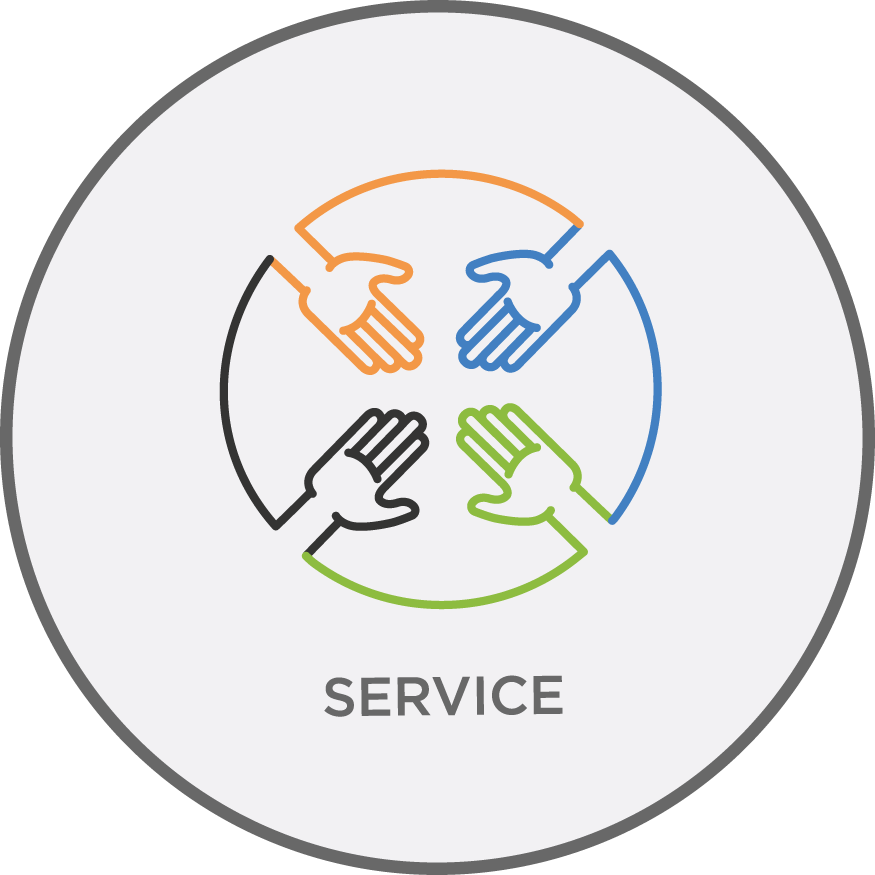
You may commit your time, energy, & talent to public, national or military service and civic work.
There are many forms of service – from running for office, to serving one’s country through military service, to serving others as part of AmeriCorps or Peace Corps. Giving of your time and talent to better the lives of others is a selfless act that can make a big impact.
The idea of service is often interwoven with volunteerism, but there is a difference between the two. Volunteering can include “acts of service” like serving a meal to a community member, while true forms of service are created to maintain systems for the betterment of society. For example, can you imagine a world without firefighters? The service of firefighters is essential to the health and safety of our communities. Like that of jury members, military members, and waste management workers.
Because service is rooted in the public good, positions of service can have unique power and influence. Using a service role in ways that are inconsistent, morally wrong, or unjust undermines the purpose of service. Politicians can decide to support legislation that will harm many communities while benefitting few others, or police officers can use inconsistent force whether the perpetrator is a white or BIPOC individual. We must act with the utmost responsibility when engaging in a service role.
Other examples of service roles include school board membership, national park service, city council, and emergency response..
“Military Service provided a lifetime of lessons, but the greatest was the knowledge that working together, no challenge is insurmountable. The belief that people standing together, with different experiences and different voices, can come together and sacrifice to meet a common goal based on a single cohesive vision, reminds me daily that anything is possible.”
– Michelle Dee, Chief Operating Officer at Jersey Cares, U.S. Army / Ft. Bragg, NC (1989-1993)
Consider the following resources when searching for a career or opportunity in a service role:
- Service – Points of Light Civic Life Today Magazine
- Americorps
- New Jersey Americorps Programs
- Peace Corps
- YouthBuild Newark
- Make Me a Fire Fighter
- National Park Service Volunteerism
- Learn About Joining the Military – USA.gov
- Become a School Board Member in NJ – Candidate Kit
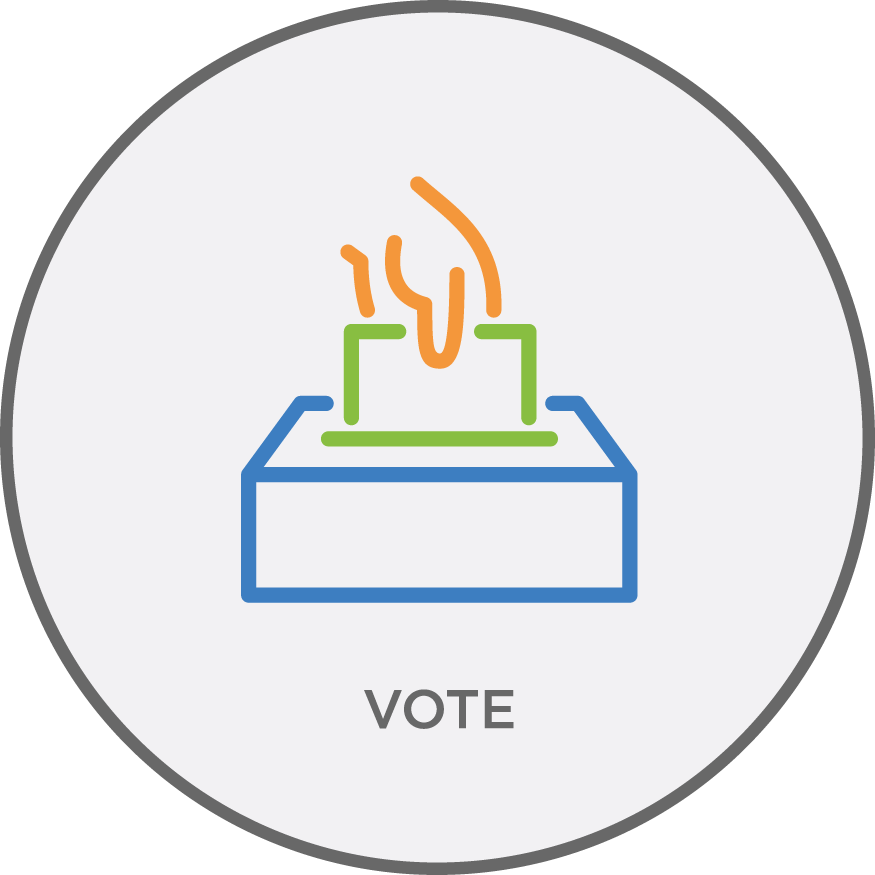
In democratic societies, voting is your opportunity to participate in the democratic process for national and local elections, supporting causes and candidates aligned with your positions.
Our voting decisions can affect regulations on the environment, policies that determine what our children learn in school, and much more. While political leaders may be at the forefront of voicing their ideas for a better society, we as citizens have the most influence on our democracy because of our power to elect these individuals to office.
Voting is our civic duty. As citizens, we won’t agree on every political topic on the table, but that shouldn’t deter us from voting. It’s important to research the candidates, look into their stances on important issues, and then vote for those who we believe best align with our values.
Many people in the US might ask themselves, "Does my vote matter?" This short answer is, yes. Many primary elections in the United States have been decided by one vote or have resulted in a tie. However, it’s not the voting process or the vote’s impact that keeps people from voting. For some it’s the belief that no matter who wins, nothing will change for them. It’s for this reason that more people need to vote. In the US, older voters, people with higher incomes, white people, and those who received more formal education are traditionally more likely to vote. We must try our best to have equal representation for all communities in our country.
So, what can you do now? First, ensure you are ready to vote. Check online to make sure you are registered to vote, find your polling location, and prepare your documents or identification. Educate yourself on what’s on the ballot. Allow for neutral, fact-based information to be part of your voting process so you can make more informed and thoughtful voting decisions.
Participate in local and national elections. Some voters may be less inclined to participate in local elections even though they are often just as important as national elections. We can provide our local officials with a firsthand view of the unique challenges and opportunities in our communities – issues which our national candidates can’t always see.
If you want to take it a step further, you can influence others to join you in voting by sharing voting resources on social media, partner with voter advocacy organizations, or start a voter registration campaign. If there’s a candidate that you strongly support, consider volunteering for their campaign. Finding ways to be a part of the entire democratic process helps build more inclusive voting systems and overall, greater representation at all levels of government.
Use these resources to ensure you are prepared to vote in New Jersey:
- Vote – Points of Light Civic Life Today Magazine
- New Jersey Voter Information Portal
- New Jersey Online Voter Registration
- New Jersey Students Voter Registration Information
- 3 Ways You Can Vote in New Jersey
- Find a Polling Location in New Jersey
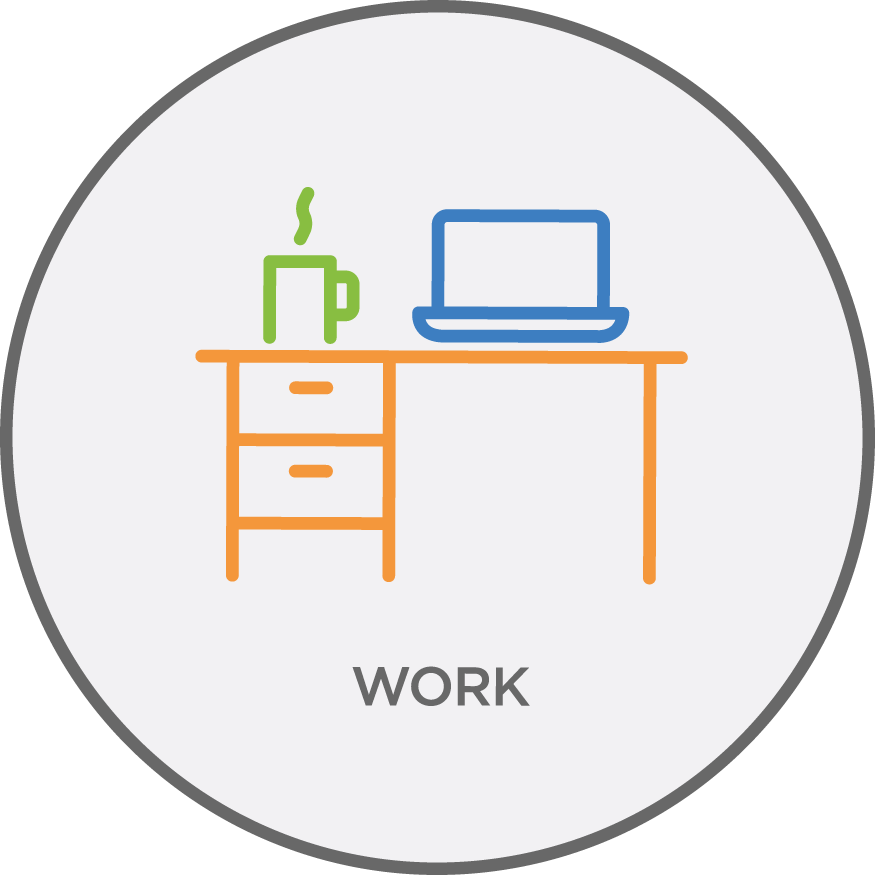
Make choices about your employment based on the organization’s values and purpose. In many cases, you may also use your workplace as a platform to advance social issues.
You can choose a profession that allows you to address the issues that you care about most. If you care about animal welfare, perhaps you choose to become a veterinarian. If you care about criminal justice, maybe you study to become a prosecutor. However, this is not the only way to work for good. You can choose to work for a business whose values align with yours. This business could have a strong diversity and inclusion program, offer employee volunteer opportunities, or prioritize sustainable practices. We must also keep in mind that working for good is a privilege. Many people are unable to choose their profession because they prioritize providing for their family or their employer may not practice social responsibility or provide a platform for employees to address issues they care about.
If you are able to work for good, consider using the following resources to find a profession that aligns with your values, or research businesses that leave a positive impact on our communities.
Search for businesses that do good:
- B Corps – Certified B Corporations are leaders in the global movement for an inclusive, equitable, and regenerative economy. Unlike other certifications for businessess, B Lab is unique in their ability to measure a company's entire social and envrionmental impact. Find B Corps around the globe by using their search platform.
- Idealist – Idealist’s mission is to help build a world where all people can lead free and dignified lives by inviting people everywhere to imagine, connect, and act. Use Idealist to find jobs, internships, or volunteer opportunities that align with your values.
- Work for Good – Work for Good has helped more than 30,000 organizations find the talent they need. Their job board is focused exclusively on mission-driven careers.
Learn more about finding purpose at work:
- Work – Points of Light Civic Life Today Magazine
- How to Use Your Career to Advance Social Change
- Finding Purpose at Work (Video)
- How to Kickstart Conversations at Work (Video)
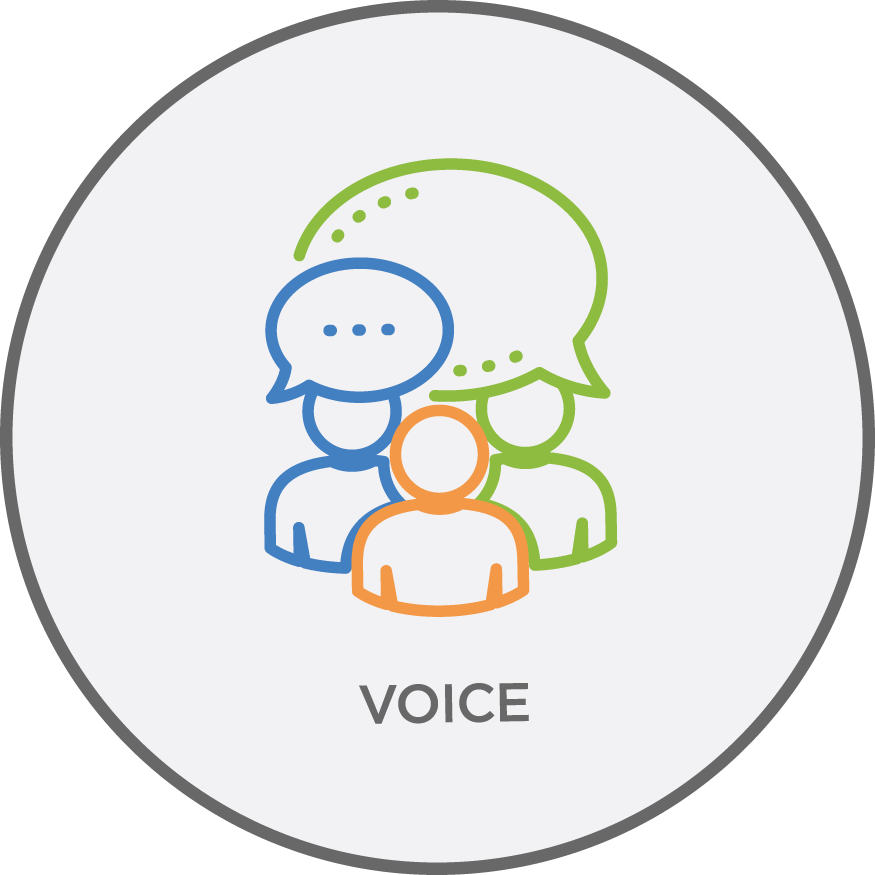
You can use your voice to influence your family, friends, and others, to raise awareness for an issue you care about.
Actions like engaging on social media, creating art, protesting, or simply having a conversation at your dinner table are all examples of using your voice. Using your voice will help others gain awareness about an issue you care about most and hopefully inspire others to take action. Of course, you can use your voice to address an issue you care about most. However, it is incredibly important to properly education yourself on the issue first. Ask yourself questions like, "How is this issue being handled on a national level? How is it being handled on a local level? Who is currently taking action on this issue? What can I do on a local level to support this issue?"
Unfortunately, using your voice can also cause harm in some cases. Many leaders throughout world history have used their voice to suppress others, leading to broken governments and authoritarian regimes. Using your voice can also in some cases lead to threats of retaliation, jeopardize your relationships with others, or even worse. This is not to intimidate you, but to ensure that you don’t take the use of your voice lightly. Take your time conducting research, strategizing, and planning out the most effective ways to use your voice. Using your voice requires bravery, but with more voices we know more can be accomplished.
Have meaningful conversations with others:
Learn more about using your voice:
- The Impact of Social Media on Philanthropy
- How to Turn Protest into Powerful Change (Video)
- Tips on Writing to Your Elected Officials
- How to Effectively Leverage Your Voice for Social Causes
- An Introductory Guide to Successful Advocacy
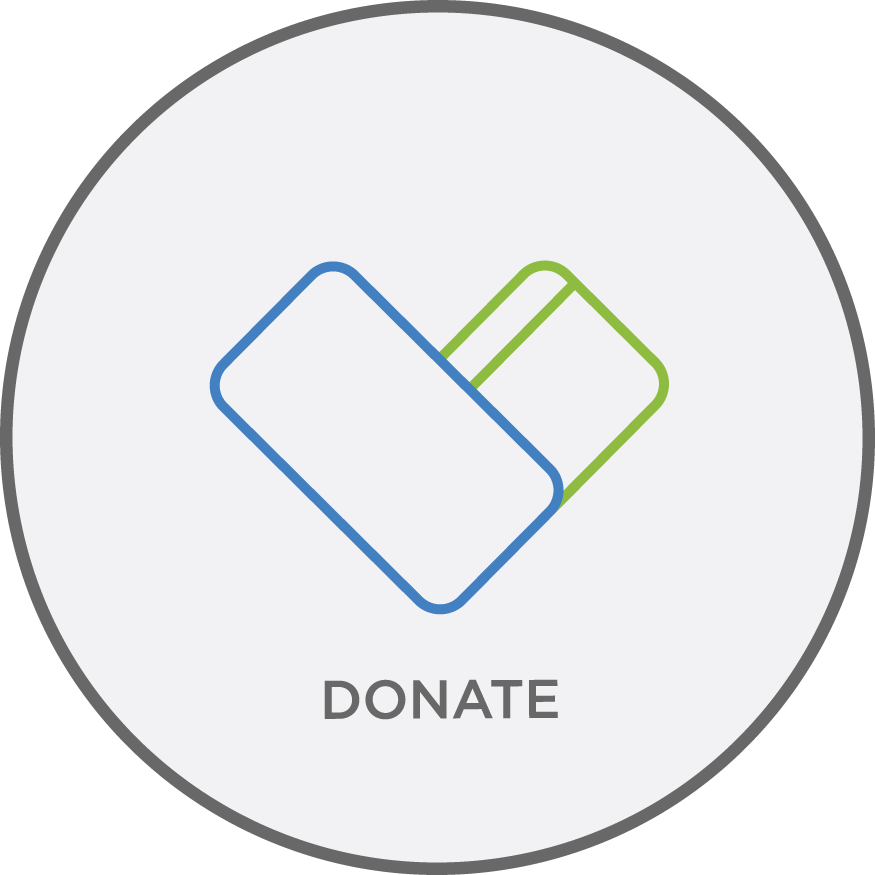
Your ability to contribute money, services, or goods to support the welfare of others or to advance a social cause you care about.
Whether it’s a small or large investment, donating helps to make our world a better place. Donations can take many forms – you can donate canned foods, clothes, services, and even your own blood. Of course, you can always make monetary donations to the causes and organizations that matter most to you. Nonprofits, hospitals, schools, and other related organizations cannot help those they serve without donations.
As we make decisions on what and where to donate, we must use mindfulness and responsibility to ensure our donations are mutually beneficial. We must consider the need, the condition of what is being donated, and the circumstances. For example, if you are donating a winter coat to an individual, you may want to ask questions like, "Does this individual need a coat? Is this coat the correct size? Will it keep this person warm? Is it too old and worn out?"
However, the more significant the donation, the more mindfulness and responsibility you must practice. Sometimes the way we donate reinforces systematic inequalities in our communities. According to research from the Bridgespan Group and Echo Green, racial bias has consciously and unconsciously influenced philanthropic investing. As a result, fewer organizations that are BIPOC-led and/or focused receive funding compared to white-led organizations. Inequalities continue to exist within the nonprofit sector.
We also overlook the importance of donating towards the infrastructure of nonprofit organizations. Often investing in a nonprofit’s staff, technology, and workspace can help the organization carry out their mission more effectively than restricted donations. For example, you might ask that your donation to a local food bank goes directly to purchasing food for a neighbor. However, if this donation supports the general operations of the food bank instead, the leadership team of the food bank can determine the best use of those funds to improve their programming, operations, or reinforce staff capacity. This ultimately leads to more individuals being served by the food bank over time. Before you donate, conduct detailed research to find high-impact organizations with expert leadership and follow these organizations to ensure they are continuing to progress their work.
Dive deeper into the impact of donations:
- Donate – Points of Life Civic Life Today Magazine
- Philanthropy Together – What is a Giving Circle?
- 5 Things to Consider Before Donating
- Donating with Impact: A Guide to Responsible Charitable Giving
- How to Decide Where to Donate After Disasters
Research local nonprofits by using these tools:
Other resources to help you make donations:
Host a Jersey Cares Collection Drive! All donated items will meet a direct need of a school or nonprofit organization in New Jersey:
- First Night Kit Program
- Diaper Drive
- Animal Shelter Helpers
- School Supply Drive (June – August)
- Halloween Costume Drive (September – October)
- Frosty’s Friends Gift Giving Program (November – December)
- Coat Drive (November – January)
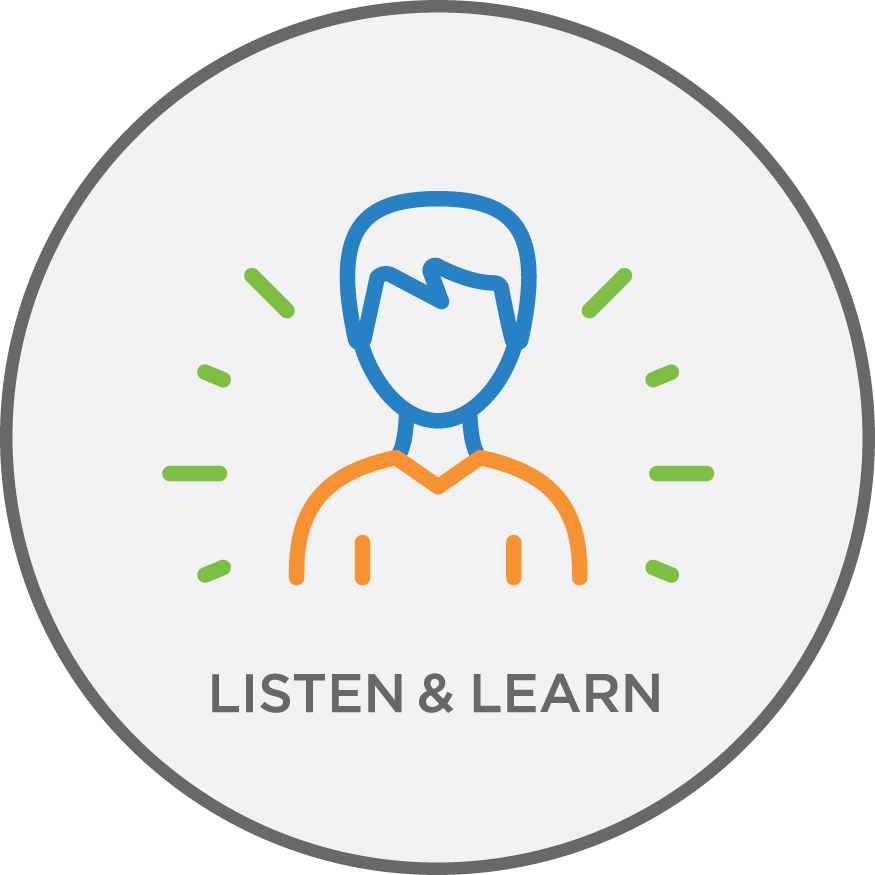
We need to stay informed, think critically and educate ourselves before acting. The more informed you are, the better decisions you can make about how to best serve your community.
Listening and learning help us find greater empathy for others. It allows us the capacity to understand or feel what another person is experiencing from within their frame of reference. This understanding will ultimately allow us to serve our communities in more meaningful ways. We must listen to people from outside of our own bubbles to learn about their backgrounds and beliefs to help reshape or validate our own beliefs. However, this isn’t always easy. It can be quite uncomfortable to listen and learn about contradictory viewpoints.
When starting a conversation, it's important to avoid judgement or confrontation. You must use your emotional intelligence to understand why the other party is taking a certain stance. You must also recognize the historical context of the topic at hand and be honest about which party has more power. Again, this is not an easy approach. It’s much easier to avoid the conversation altogether. However, it’s important to recognize that avoiding discussions on divisive topics might mean that you are in a position of privilege to not be directly impacted by the topic at hand. Recognizing this privilege may help you begin these difficult conversations.
It’s also important to understand that changing someone’s mind is one of the hardest things to do. It’s natural for humans to be steadfast in our beliefs, because it’s what keeps us rooted in the groups we most identify with. As social beings, we rely on our social circles to keep us safe and provide a sense of belonging. Shaming ideas that keep humans connected to their social circles can cause division. This is why we must reject cancel culture. Instead of shaming someone for their beliefs or stance, we must instead open a dialogue to allow for learning.
As you stray from your own bubble to understand the experiences and perspectives of others, you may find yourself informed and empowered to make large-scale change. You can start by donating money to an organization that is aligned with the cause you are supporting. Eventually you might start an active lobbying group, organize a protest, or use your privilege to engage in difficult situations on behalf of a marginalized group.
Resources for better listening and learning:
- The Better Arguments Projects
- FactCheck.org
- All Sides
- The Flip Side
- Living Room Conversations
- Greater Good Science Center
Listen and learn even more:
- Productive Conversations Take Real Empathy
- How to Have Difficult Conversations When You Don’t Like Conflict
- In a Difficult Conversation, Listen More Thank You Talk
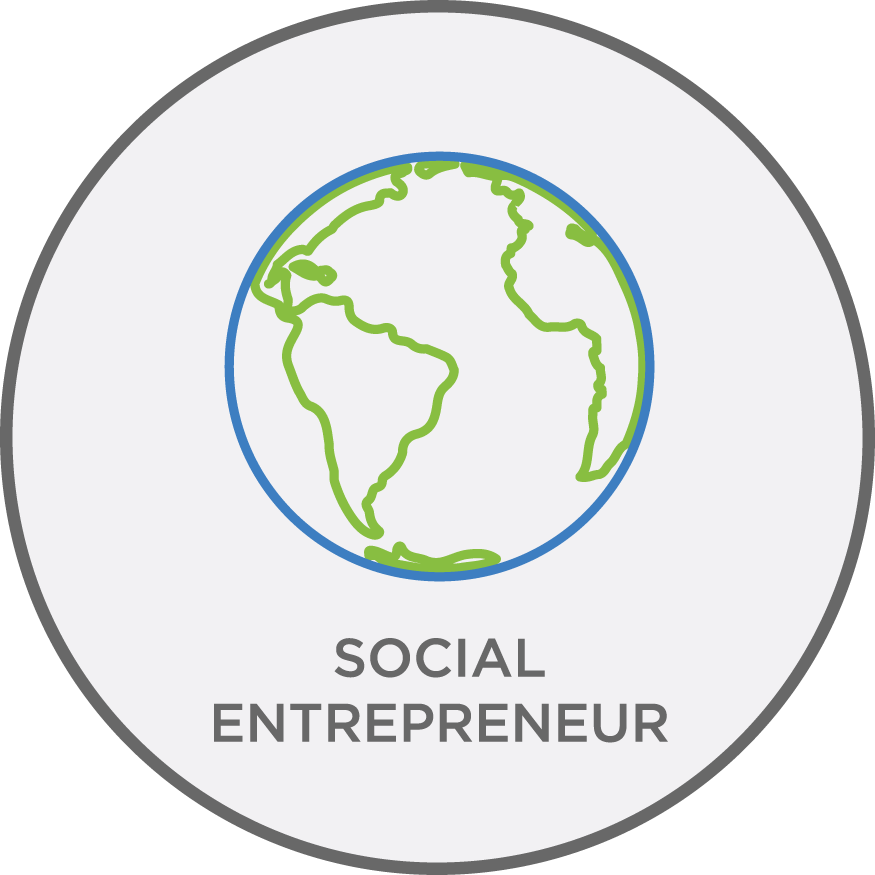
You may identify a need that has not been met by traditional institutions, structures and systems, and be able to lead creative and innovative solutions that drive change.
A social entrepreneur is an individual or group who identifies a need that has not been met by traditional structures around them. Social entrepreneurs are resourceful in creating innovative solutions to get to the root of complex problems. They address problems that are not being solved by governments, nonprofits, or companies.
Social entrepreneurs are often mistaken for business entrepreneurs, but each has its own distinguishing factors, the main difference being that business entrepreneurs have a primary goal of maximizing their financial value to shareholders. A social entrepreneur still must raise funds for their initiatives, but their work centers on creating effective solutions to society’s most pressing issues above anything else.
Social entrepreneurs are motivated to remove the root cause of the problems that impact society, not just treat the symptoms of those problems. For example, poverty is a systemic problem. Impoverished communities typically have barriers to education and quality healthcare, which can prevent individuals from working, and therefore contributes to a cycle of poverty for that community. Social entrepreneurs must break through these barriers and deeply understand the causes of systemic issues to effect meaningful change.
If you want to be a social entrepreneur, the first step is identifying a problem in your community and taking a deeper dive to understand the causes of that problem. You can brainstorm creative solutions to that problem and recruit others to join you in solving that problem. However, not everyone can be a social entrepreneur. Social entrepreneurs need an ecosystem for success. In this ecosystem, a social entrepreneur might need discretionary income to invest, a network of volunteers, and trusted individuals to take on leadership roles. If you are unable to be a social entrepreneur you can consider supporting one through your purchase power, voice, and ability to donate. Either way, ensure you are doing what’s best for you and your community.
Learn More About Social Entrepreneurship:
- Social Entrepreneur – Points of Light Civic Life Today Magazine
- Social Entrepreneurship 101
- Social Entrepreneurship Revisited
- Tackling Heropreneurship
- Ashoka’s Systems Change Crash Course
Take Steps to Becoming a Social Entrepreneur:
- Skoll Foundation – Learn and connect with individuals and organizations making systemic change around the globe.
- B The Change – Share ideas and learn about how others are using social entrepreneurship.
